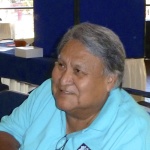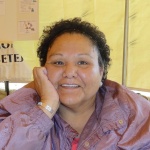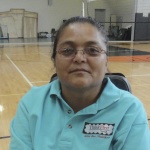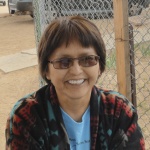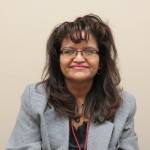Our ThinkFirst Navajo Voices for Injury Prevention (VIPs) have each created videos — now available on the Eve’s Fund YouTube Channel — that reveal their personal injury stories: how they became paralyzed and the challenges they face on a daily basis.
These courageous Navajos, all injured in events that could have been prevented, discuss how hard it is living with paralysis on the Navajo Nation because of poverty and inadequate housing, as well as a lack of access to buildings, transportation and other services important for quality of life.
In spite of the obstacles our VIPs face, their stories convey a message of survival, strength and resilience…and a commitment to teaching others how to avoid injuries through the Eve’s Fund ThinkFirst Navajo program.
Meet our VIPs below and then watch their videos. Doing so could save a life or prevent a catastrophic injury for you or your loved ones. We hope you will leave some comments as well.
Don Smith
In his video, “Things Happen for a Reason,” Navajo Don Smith tells how just after high school graduation, his life changed in a second when he was thrown from the back of a pickup truck driven by someone who had been drinking. In that instant, Don’s future as a college basketball player was shattered. In spite of his paralysis and spinal cord injury, Don has tried to live life to the fullest and believes that what happened to him happened for a reason.
Cecelia Fred
At age six, Cecelia Fred was shot in the spinal cord by a close relative. As a result, she became a paraplegic. This is her story…showing the obstacles she had to conquer and how as an adult, she has served as a peer advocate and mentor for individuals with disabilities, especially those with spinal cord injuries. Watch her video, “Precious Life.”
Doris Dennison
In 1986, Doris Dennison sustained a severe spinal cord injury when the car she was traveling in hit a patch of black ice on a remote road in Utah, rolled over three times and ejected her, her infant son, and the other passengers in the vehicle. In this powerful, personal story, Doris talks about the trauma and how she feels personally responsible for what happened because no one was wearing a seat belt. Doris shares her story in the video, “Life Can Change in a Second.”
Darlene Singer
Darlene Singer was injured in an auto crash as a young adult that left her paralyzed from the waist down. She was not wearing a seat belt when the car she was driving hit black ice, ran off the road and rolled over three times. In this video, she talks about her life before and after the traumatic event. She has not let it stop her from providing resources and support for other people living with disabilities and working as an injury prevention specialist for ThinkFirst Navajo. Watch Darlene’s video, “My Life Before and After: Living with Paralysis.”
Margarita Coho
Margarita Coho, known to her friends as “Juanita,” became paralyzed when she was thrown from a vehicle driven by a close family member who was driving while drunk. Margarita was not wearing a seat belt at the time. This video is about her life since the incident. She is the proud mother of a 10-year-old son named Ryan. She volunteers her time speaking to young people in her church about injury prevention, especially related to drinking and driving. She tells her story in the video, “Why Did This Happen to Me?”
About ThinkFirst Navajo
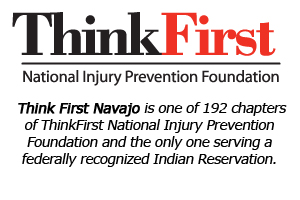 To reach Navajo youth in grades K-12, Eve’s Fund gives free presentations at schools across the Navajo Reservation. We owe much of the success of our program to our VIPs, all Navajo adults with paralysis. They understand Navajo culture and are willing to openly share their personal stories of how they became paralyzed.
To reach Navajo youth in grades K-12, Eve’s Fund gives free presentations at schools across the Navajo Reservation. We owe much of the success of our program to our VIPs, all Navajo adults with paralysis. They understand Navajo culture and are willing to openly share their personal stories of how they became paralyzed.
At each school, the VIP is joined by one of our trained Health Educators who rounds out the presentation using an age-appropriate, science-based curriculum from ThinkFirst National Injury Prevention Foundation.
Since its creation in 2005, our ThinkFirst Navajo program has taught more than 35,000 young people about injury prevention.
For more information on our award-winning injury prevention program visit our ThinkFirst Navajo program page.
